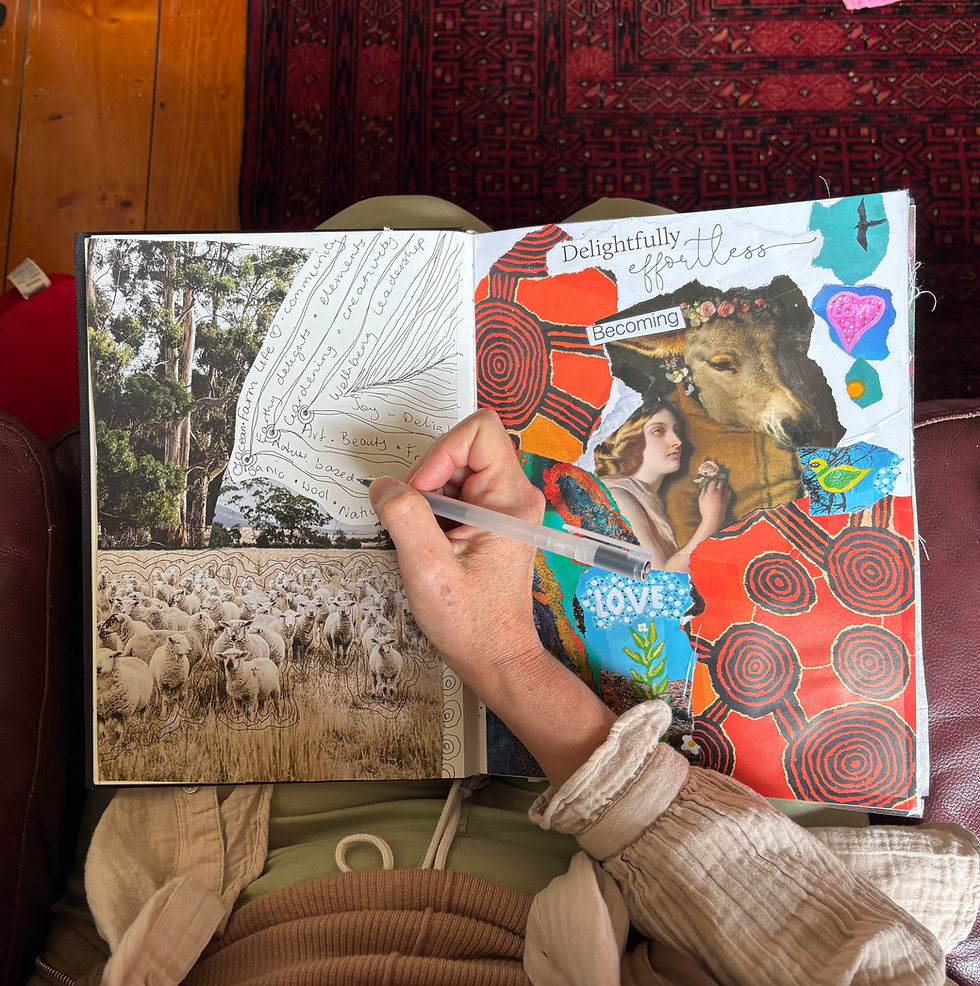The Art of Interpreting Your Dreams
- Marion Miller

- Sep 20, 2022
- 3 min read
Last Friday night I listened to lecture by David Tacey on dreams at the Melbourne Jungian Society. It was fascinating and inspiring. The lecture discussed Jung's approach to working with his clients dreams. Something I am increasing interested in. It seems dreams hold messages and information from our unconscious mind. If we learn how to understand this information we can live a more whole life.
I remember when I lived for a year in Japan I bought a dream dictionary and spent time analysing dreams in an online forum just for fun. This was back before social media and I found this was a good way for me to connect with other english speakers while being quite isolated in a small town in Japan. Sometimes my online community really connected with the dream analysis but I have relised I have a lot to learn.
Interestingly I still remember dreams from my childhood and have had several reoccurring dreams over my decades of life. Some the themes are very obvious to me and others have had hidden meanings that have revealed themselves to me over time when I look over them with older and wiser eyes. One thing I am certain about is dreams are powerful messages about your life and beyond.
Lately my dreams have been quite chaotic, and I am always running away or in fear of what is unfolding in the dream which is quite a contrast to the energy of my waking life which is peaceful. It can be quite unsettling to wake up in this state and sometimes feeling panic or disorientation. I also read recently it is good to turn toward what you fear in dreams to understand it more and I have set that intention. We take a similar approach in mindfulness so it makes a lot of sense that when we can face our fears they no longer become fearful.
Here’s my key take aways from the lecture:
• dreams provide a counter perspective to our waking reality and life
• dreams maybe filled with symbols, archetypes and information from the collective unconscious about the unlived life
• many of the ancient wisdom and indigenous traditions are in alignment with the Jungian perspective on dreams
• science has mostly put dreams in the too hard basket
• dreams can tell us about our complexes, defences, instinct, intuition and creativity
• the dream is a doorway to the unconscious and potentially universal mind
• the dream has its own language and can’t be rationalised with logic
To quote “the dream is a hidden door in the innermost and most secret recesses of the soul, opening into that cosmic night which was psyche long before there was any ego-consciousness, and which will remain psyche no matter how far our ego-consciousness extends. C.G. Jung, Visions Seminar.
Marie-Louise von Franz, a scholarly colleague of Jung’s, wrote that dreams “are the voice of nature within us.” Dreams may be the sacred place where human and cosmos meet and interact. In The Collective Works, Jung elaborates:
“... in dreams we put on the likeness of that more universal, truer, more eternal man dwelling in the darkness of primordial night. There he is still the whole, and the whole is in him, indistinguishable from nature and bare from all egohood. It is from these all-uniting depths that the dream arises ...”
I’m currently studying depth psychology and as part of that learning I’m partaking in my own psychoanalysis. I’ve got a dream journal and recording my dreams but this week I have started waking with no recollection so perhaps my unconscious mind is now playing hide and seek!
What do you remember about your dreams?








